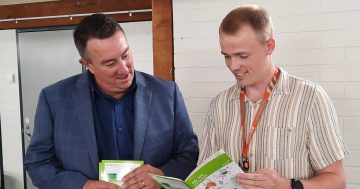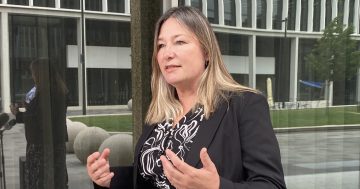
This week sees Canberra kids return to school. This is a time of excitement, anxiety, hope and great expectations – for children, parents, teachers and the community.
Education is one of the biggest investments we make as a community – in the ACT it makes up about a fifth of our annual public sector spend, around $1.2B each year. We are lucky to live in a place that provides quality public education which means that most people are able to access education that is affordable and useful. At both a national and local level however there are questions about whether or not we are doing as well as we should be in our education system. Last year’s NAPLAN results showed that while the ACT performs better than most other jurisdictions, there are areas where we are falling behind New South Wales and Victoria. Some experts are questioning how well we really are doing given the assets we have as a community, suggest we are becoming complacent and assert we are not creating an environment where all our children can do their very best.
The latest bright idea from our Federal Education Minister is that we need more testing in the early years of primary school. While there is much discussion about evidence based approaches, there is little evidence to back up the claim that more testing in the early years will deliver better outcomes from our kids. The evidence about the usefulness of universal testing is patchy at best, and does nothing to deal with the issues that may be driving less than optimal results in our educational system.
As a parent of children in primary school, I know that our teachers are frequently testing the literacy proficiency of their students – they know which students are thriving and which ones need support. The experience of many parents is that what we actually need is more support when we identify that a child may need assistance. We need more opportunities for assessments that can provide assistance in pinpointing any underlying issues. We need more reading recovery programs for children who need to some one-on-one support. We need access to affordable speech pathology programs for children who need this support and affordable and accessible programs for children who may have dyslexia and other challenges with literacy. We also need to nurture the children who are doing well – stretch and extend them and create a lifelong love of learning. Fundamentally, we need to provide more resources to teachers in class to give individual attention for all our children to meet their potential.
Our teachers do a great job but are often placed in a situation where they can’t possibly do all that they need to do. We owe it to our children to move beyond the politicisation of education to an environment where there is a commitment to needs based funding, an ability to access additional support where needed and a commitment to creating a system focused on children, their future and in turn all our futures.
What do you think? Do you think testing in early primary school will drive improved educational outcomes or are there better approaches?





















